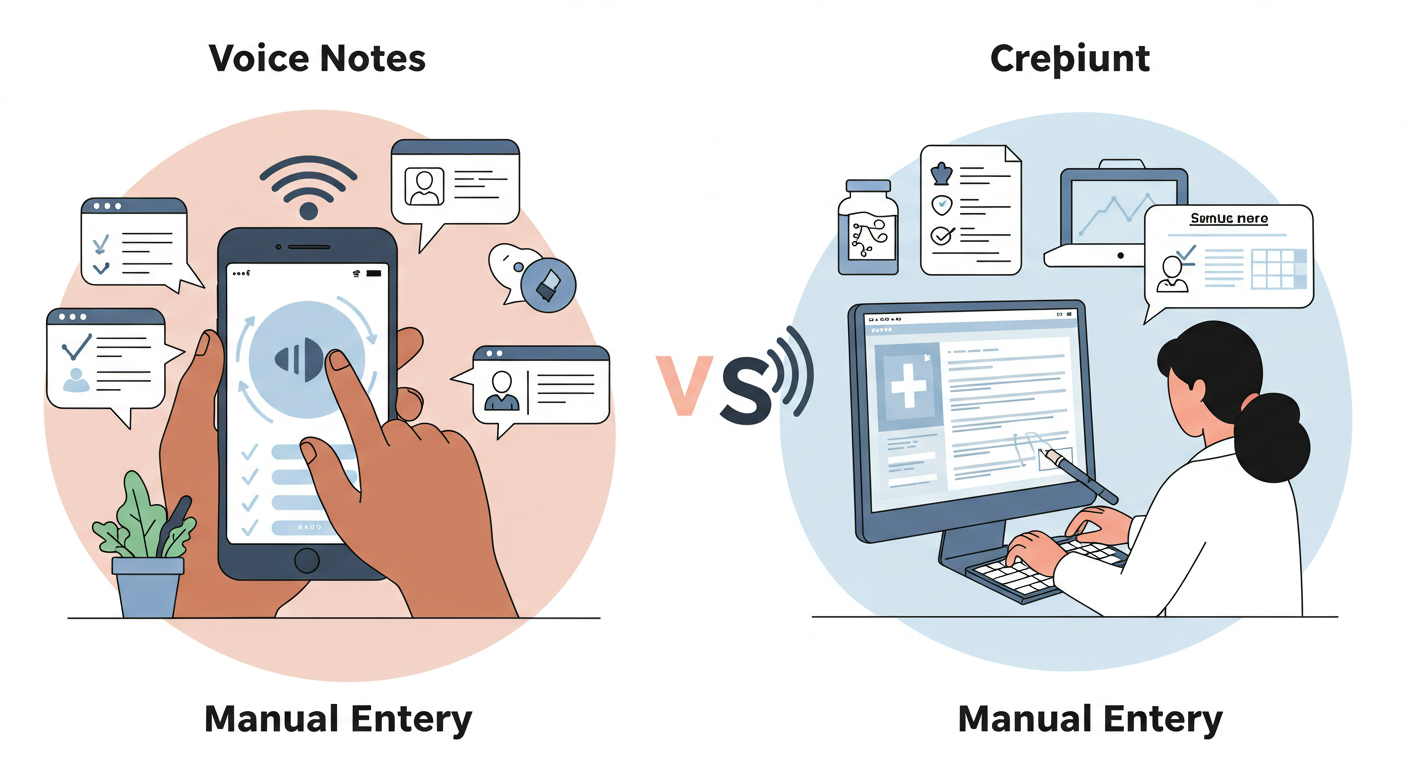HEALTH
Top 5 Tips for Managing Your Medications Effectively

Managing medications effectively is very important for maintaining health, especially if you have a more severe condition. It involves a little more than just taking pills at the right time. With proper medication management, you will be able to prevent much more serious health issues, improve your overall quality of life, and ensure that treatments are as effective as possible.
For this post, we consulted with the professionals at the Uptown Pharmacy to help you manage your medications much more effectively and ensure that you don’t lack in this field at all!
Creating a detailed medication list
A strong medication list is one of the most important tools for managing your medications right. This list needs to include all prescription medications, over-the-counter drugs, supplements, and vitamins you are taking at the moment.
For each and every item you are taking, you should note some of the following items. This includes naming the medication, its dosage, frequency, and timing of consumption, the purpose of therapy, and which doctor prescribed them to you.
Make sure to keep this list updated and bring it to every medical appointment. Consider sharing it with your healthcare providers to ensure that they are aware of all the medications you are taking at the moment. This can help you avoid possible medicine interactions and ensure on-point care among all your doctors and healthcare professionals.
Using medication management tools
Organization of your medication can be a little tricky sometimes, especially if you take a larger amount of medicine. Fortunately, with the use of medication management tools, it can be simplified a lot! These tools come in different shapes and forms, ranging from simple pill organizers to advanced digital apps.
Regarding pill organizers, they are available in a few different sizes depending on the type of medication you are using. Most commonly, they have compartments for different days of the week and times of the day. They are especially helpful for patients who take multiple medications every day.
On the other side, many different apps are available on the market and they can help you manage your medications much more effectively. These apps can send notifications and reminders for when you need to take your medications, track your medication usage, and even provide information about possible side effects. Some of the most popular apps are Medisafe, MyMeds, and Pill Reminder.
Understanding your medication
Another very important thing for managing medication effectively is to have a clear understanding of your medication. This includes knowing what each medication is for, how and when to take it, potential side effects, and what you should do if you miss a dose.
If you are unsure, always ask your doctor or pharmacist to explain every uncertainty you have about your medication. Remember that an informed patient is much better equipped to comply with their medication schedule and notice if there are any potential issues early on.
Creating a healthy routine
By incorporating your medication schedule into your day-to-day routine, you will be able to efficiently enhance your routine, and make it much easier to remember. For instance, one of the best pieces of advice for a strong routine is to divide your medications into three groups.
- For morning medication, it is recommended to take your medication before or after breakfast, as it is easiest to remember.
- Regarding midday medication, taking them with lunch is best.
- And for evening medication, consider doing it after your nighttime activities, such as brushing your team.
This way, by associating medication times with your already established routines, you are much more likely to remember to take them on time. Consistency is the major key to making sure that your medications work as they need to, and further reduce the chances of forgetting your dose.
Having regular communication with your doctors
Probably the most important factor is having regular communication with your healthcare provider. This way, you are ensuring that you maintain your medications as intended. Try to regularly review your prescribed medications with your doctor or healthcare giver, especially if there have been changes to your medication or health previously.
- One of the most important aspects of communication is discussing side effects with your doctor. Make sure to inform your doctor about any side effects you may experience caused by medication. In this case, your healthcare provider may need to adjust your dosage or even switch you to a different medication.
- Also, make sure that you completely understand how to take each medication, which includes timing, whether it needs to be consumed with food, and possible interactions with other substances.
- Always inform your doctor about all medications you are taking at the moment, including over-the-counter drugs and any other supplements. This is crucial for preventing potentially harmful interactions.
- One thing that is often forgotten, but is very important, is to ask about generics. If the cost is your concern, make sure to ask your doctor or pharmacist about the generic version of your medication, which is in many cases, much more affordable.
With regular and open communication with your doctor, you will be able to better manage your medications and address any possible issues that may happen during the time of treatment, ensuring that you stay well and healthy.
Final thoughts
Managing your medication in the right way is very important for your health in the long run. It ensures the best possible outcomes from your treatment. If you make sure to keep an updated medication list, set clear routine reminders, and communicate with your doctor, you will be able to navigate your medication with much more ease and comfort. These steps can help you be organized and avoid any potential complications from irregular medication management.
HEALTH
Blackboard uti: How Digital Learning Habits Can Affect Your Urinary Health

In today’s world, digital platforms like Blackboard have revolutionized education. While they offer unmatched convenience and access to learning, they also come with some unexpected health consequences. One such emerging concern is what’s being referred to as blackboard UTI. Though not a formal medical diagnosis, blackboard UTI is used to describe the rise in urinary tract infections (UTIs) connected to extended use of online educational tools and a sedentary digital lifestyle.
Spending hours on digital learning platforms like Blackboard can lead to behaviors that increase the risk of urinary tract infections — such as sitting for long periods, ignoring the need to use the restroom, and not drinking enough water.
Understanding Blackboard UTI and Its Impact
What is a Blackboard UTI?
The term “blackboard UTI” is a modern expression describing UTIs caused or aggravated by lifestyle habits common among students and professionals who spend excessive time on Blackboard or similar learning systems. The term sheds light on how technology-induced routines can quietly affect physical health, especially the urinary system.
Key Contributors to Blackboard UTI
1. Prolonged Screen Time Without Movement
Staying seated for hours on end while attending virtual classes or completing assignments reduces circulation and puts continuous pressure on the lower abdomen. This stagnant position can impact bladder function and increase the chance of bacterial growth.
2. Ignoring Bathroom Urges
Many online learners get so engrossed in coursework that they postpone trips to the restroom. Holding in urine for long periods allows bacteria to multiply in the bladder, often resulting in an infection.
3. Insufficient Water Intake
When involved in online sessions or late-night study marathons, people often forget to drink water. This leads to concentrated urine, which can irritate the urinary tract and promote infection.
Symptoms to Watch Out For
If you’re a frequent user of Blackboard or similar platforms, it’s important to recognize the early signs of a blackboard UTI. Catching symptoms early can help prevent more serious issues.
-
A burning feeling when urinating
-
Needing to urinate frequently, even if little comes out
-
Cloudy or foul-smelling urine
-
Pelvic discomfort or pressure
-
Mild fever or fatigue in some cases
These signs should not be ignored, especially if you spend several hours each day working or studying online.
Lifestyle Habits That Increase Risk
Skipping Breaks During Study Sessions
Going from one online class to another without breaks can lead to stress and neglect of basic bodily needs like hydration and restroom use.
Poor Posture and Sitting Positions
Bad posture while seated can indirectly affect bladder function. Slouching or leaning forward for long periods may lead to lower abdominal pressure, which can trigger discomfort or increase infection risk.
Caffeine and Sugary Drinks
Many online learners rely heavily on caffeinated beverages or energy drinks to stay focused. Unfortunately, caffeine acts as a bladder irritant, which can aggravate or contribute to UTIs.
Preventing Blackboard UTI: Practical Tips
Preventing a blackboard UTI involves simple yet consistent habits that support urinary tract health even during demanding study schedules.
1. Stay Properly Hydrated
Drinking enough water throughout the day helps flush bacteria out of the urinary tract. Use a water tracker or schedule hydration reminders during online classes.
2. Take Breaks to Move and Stretch
Get up every 45 to 60 minutes, walk around, and stretch. Movement improves circulation and reduces strain on your lower body, which supports bladder health.
3. Don’t Delay Bathroom Breaks
If you feel the urge to urinate, pause your session and go. Holding it in not only causes discomfort but also increases your risk of infection.
4. Maintain Hygiene Standards
Wash your hands regularly, especially before and after using the restroom. Also, keep your workspace clean to avoid indirect exposure to germs.
5. Limit Caffeine and Soda Intake
Opt for water, herbal teas, or diluted fruit juices instead of coffee or soda. These alternatives are gentler on your bladder and promote hydration.
Managing Blackboard UTI if It Occurs
If you suspect a blackboard UTI, take steps to manage it before it worsens. Mild infections may clear up with proper care, but persistent symptoms require medical attention.
Home Remedies and Self-Care
-
Increase your water intake immediately
-
Avoid bladder irritants such as spicy foods and caffeine
-
Use a heating pad on the lower abdomen for relief
-
Take cranberry supplements if recommended
Medical Treatment
If symptoms last more than 48 hours or worsen, consult a healthcare provider. They may prescribe antibiotics or run tests to ensure the infection hasn’t spread to the kidneys.
Long-Term Prevention for Online Learners
Creating sustainable habits is the best way to reduce the risk of blackboard UTI in the long run.
-
Build a daily routine that includes movement, hydration, and rest
-
Use ergonomic furniture to support better posture during long sessions
-
Keep healthy snacks and water at your desk
-
Consider bladder-friendly foods like yogurt, bananas, and leafy greens
By making your health a priority alongside your studies, you can reduce your risk of developing UTIs while still thriving in an online learning environment.
Conclusion:
As online education becomes more common, it’s important to address hidden health risks like blackboard UTI. Simple preventive steps like drinking water, taking breaks, and avoiding harmful habits can go a long way in maintaining your urinary health. Stay mindful of your body even when your mind is focused on learning, and make wellness an essential part of your daily routine.
HEALTH
The Dangers of Defective Products: What to Do If You’re Injured

We live in a world where convenience is everything.
Every day, we use products without a second thought – our phones, appliances, cars, and even the food we eat. We trust these items to be designed and tested for safety.
But what happens when something goes wrong? When a phone battery overheats and explodes, a child’s toy has toxic chemicals, or a car’s airbags fail during an accident?
Defective products aren’t just inconvenient. They are also dangerous.
So, what can you do if you or a loved one is injured by a defective product? Let’s find out.
Types of Defective Products and Common Injuries
Injuries from defective products happen more often than you’d think. Take the US, for example, where thousands of product recalls happen every year. These products cover everything from electronics to medications.
Some cases even make headlines—like a major car manufacturer recalling vehicles due to safety concerns—but many go unnoticed.
Unfortunately, when a product fails, it can lead to serious injuries, expensive medical bills, and even long-term disabilities.
Here are some of the most common types of defective products and the dangers they pose:
Consumer Electronics
We rely on electronic devices more than ever. But we don’t realize how many of them come with hidden risks.
Some defects in these devices include:
- Faulty wiring
- Overheating batteries
- Poor design
And the consequences?
- Electrical shocks
- Fires
- Explosions
Remember the wave of smartphone recalls due to batteries catching fire? That’s just one example of how dangerous a poorly made product can be.
Auto Defects
Cars are complex machines, and even the smallest mistake can take a life.
Some dangerous but common defects in cars are:
- Defective brakes
- Malfunctioning airbags
- Faulty seat belts
These flaws can turn a minor accident into a fatal one.
Many auto manufacturers have faced lawsuits over safety failures that led to injuries and even deaths.
Toys and Children’s Products
Children’s products should be held to the highest safety standards, but they have also repeatedly been found to have defects.
Small detachable parts of toys can pose choking hazards. Some toys even contain harmful chemicals like lead.
Parents need to be extra cautious when purchasing toys for their children, even if they are from reputable brands.
Household Products
From cleaning supplies with wrong labels to tools with design flaws, everyday household products can cause burns, poisoning, and other severe injuries.
Even furniture can be dangerous. Toppling dressers, in particular, have resulted in a lot of child fatalities.
Defective Medications
Prescription medications are supposed to help you heal from injuries, but when they’re contaminated or not labeled properly, they can end up causing you more health complications.
The same goes for medical devices like pacemakers, surgical impacts, and insulin pumps. If they fail, the results can be catastrophic.
Who Is Liable for Defective Product Injuries?
If a defective product ends up causing harm, finding out who is responsible isn’t always easy.
Here’s a breakdown of potential liability:
Manufacturers
If the defective product was inherently unsafe due to production errors, the manufacturer is usually at fault.
This includes:
- Contamination in food and medicine.
- Improper assembly of electronics.
- Design failures in vehicles.
Retailers and Distributors
Even if they didn’t make the product themselves, businesses that sell faulty items can also be held responsible.
If a retailer knowingly sold a defective product to you that resulted in an injury, they may be liable for the damages.
Designers and Engineers
Some defects come from flaws in design rather than a production error.
If a product is dangerous even when used correctly, the engineers or designers who approved it might be at fault.
Product liability laws are made to protect customers and to ensure that companies are held accountable when their products cause harm. But filing a claim may require you to seek legal help.
What to Do If You’re Injured by a Defective Product
If a defective product results in an injury to you or someone you know, what you do next is crucial.
Taking the right steps can help you protect your health and your legal rights.
Follow these steps:
- Seek medical help immediately. Even if your injury seems minor, get checked by a doctor. Some injuries, like internal bleeding and chemical exposure, do not show symptoms right away.
- Preserve the product and its packaging. One of the biggest mistakes victims make is throwing away the defective product. Make sure you keep it as evidence, along with any packaging, receipts, and instruction manuals.
- Document everything. Take photos of the product, your injuries, and even the place where it happened. Also, keep a record of your medical records and prescriptions.
- Report the issue. You can file a complaint with consumer safety organizations like the US Consumer Product Safety Commission (CPSC) or the Food and Drug Administration (FDA). Your report could help save others from getting hurt.
- Talk to a lawyer. Product liability cases can get complicated, especially if you’re going up against a large corporation. That’s where an experienced attorney comes in.
Before you take any legal action, make sure your lawyer is familiar with the local laws and legal processes. For example, if you’re in Albany, working with Albany personal injury lawyers will help you understand your rights and pursue compensation.
A legal expert will also help you determine if you’re eligible for a settlement or if a lawsuit is necessary.
Compensation for Victims
If your injury case is entitled to compensation, the amount you receive will depend on factors like the severity of your injury, medical costs, and lost income.
Here’s what you may be able to recover:
- Medical expenses like hospital bills, medication, therapy, and long-term care.
- Compensation for the work you missed and for reduced earning capacity.
- Financial help for physical pain, emotional distress, and trauma.
- Payment for punitive damages and additional fines, if the company was grossly negligent.
Some cases involve class action lawsuits, where multiple victims file claims against a company. Others are individual claims, where the victim seeks personal compensation.
Either way, having legal representation is essential.
Stay Informed and Protect Your Rights
We often assume that the products we use daily are safe. However, something as simple as a mislabeled medication or faulty wiring in an appliance can lead to severe consequences.
The good news? Consumers have rights, and companies can be held responsible when they fail to ensure safety. If you or someone you know has been injured by a defective product, don’t ignore it.
Your safety matters. Stay informed, be cautious, and don’t hesitate to take action when something goes wrong.
HEALTH
Voice Notes vs. Manual Entry: What’s More Efficient in Home Health Software Use?

In the fast-paced world of home healthcare, time and accuracy are critical. Clinicians often juggle demanding caseloads, drive long distances between visits, and must still find time to document patient interactions, care plans, and treatment updates—often multiple times per day. With the rise of digital tools like home health care software, two documentation methods have emerged as popular choices: voice notes and manual entry.
But when it comes to efficiency, which one truly wins out?
In this article, we explore the pros and cons of voice notes and manual data entry in home health software, and how agencies can choose the best approach for their team.
The Growing Role of Documentation in Home Health Care
Documentation is a cornerstone of home health care. It ensures accurate patient records, supports clinical decisions, maintains compliance with regulatory requirements, and facilitates billing and reimbursement. For many clinicians, however, documentation is one of the most time-consuming aspects of the job.
The introduction of home health care software has streamlined many aspects of this process, but the method of input—voice vs. typing—still has a significant impact on how efficiently a clinician can complete their tasks.
Manual Entry: The Traditional Approach
Manual entry refers to typing information directly into the electronic health record (EHR) system or software platform. This has been the standard method for years and remains common across many agencies.
Advantages of Manual Entry
- Structured and Precise
Manual entry allows for more structured documentation. Most home health platforms offer templates, drop-down menus, and required fields that ensure consistent data capture. This structure helps improve compliance and makes it easier for reviewers and QA teams to understand the care provided.
- Better for Complex Information
Typing may be more effective when documenting detailed clinical findings, medication changes, or care plans that require careful explanation and formatting.
- Easier Editing and Reviewing
Typed notes are easier to review, edit, and share with other care team members or supervisors. Typed text is also easier to search, tag, and categorize within the software.
Challenges of Manual Entry
- Time-Consuming: Typing can slow clinicians down, especially on mobile devices or small laptops used in the field.
- Disruptive Workflow: Many clinicians must wait until after a visit to enter notes, which can lead to delays, missed details, or late submissions.
- Ergonomic Fatigue: Prolonged typing during or after a long shift can lead to fatigue and reduce focus on patient care.
Voice Notes: The Modern Alternative
Voice recognition and audio recording technology have advanced significantly in recent years. Many home health care software platforms now allow clinicians to dictate their notes or record audio memos that are transcribed or reviewed later.
Advantages of Voice Notes
- Faster Documentation
Speaking is generally faster than typing. A clinician can speak 120–150 words per minute compared to typing 40–60. This makes voice notes especially valuable during busy days or when visiting multiple patients in a short timeframe.
- Hands-Free Convenience
Voice entry allows clinicians to document while performing other tasks (e.g., walking to the car, preparing to leave the patient’s home), reducing total documentation time.
- Reduces End-of-Day Backlog
Clinicians can dictate notes immediately after visits, preventing notes from piling up and reducing the risk of forgotten details or documentation errors.
- More Natural Communication Style
Voice notes can capture nuances of clinical judgment and patient interaction that may be lost or overlooked in structured forms.
Challenges of Voice Notes
- Transcription Errors: If speech recognition isn’t accurate, transcription may include errors that need manual correction.
- Privacy Concerns: Recording voice notes in the presence of patients or family members can raise confidentiality issues.
- Unstructured Format: Voice dictation lacks the structured fields of manual entry, which can make data harder to analyze or categorize.
- Background Noise: Noisy environments can interfere with audio quality and voice recognition, reducing accuracy.
Finding the Right Balance
Rather than choosing between voice and manual entry, many home health agencies are adopting a blended approach. Clinicians can dictate initial observations during or right after a visit, and then review or convert them into structured entries during downtime or with the help of transcription tools.
Modern home health care software is making this hybrid model more accessible by offering:
- AI-powered transcription and formatting
- Smart templates that auto-fill based on voice input
- Built-in error detection and QA alerts
This dual-mode strategy helps clinicians stay productive while still meeting regulatory and quality assurance standards.
Final Thoughts
Both voice notes and manual entry offer unique advantages in home health care software. Voice notes shine in speed and convenience, while manual entry leads in precision and compliance. Rather than choosing one over the other, the most efficient approach may lie in flexibility—empowering clinicians to document in the way that best supports their workflow, while ensuring that the final record meets quality and regulatory standards.
-

 GENERAL1 year ago
GENERAL1 year agoDiscovering the Artistic Brilliance of Derpixon: A Deep Dive into their Animation and Illustration
-

 Posts1 year ago
Posts1 year agoSiegel, Cooper & Co.
-

 Lifestyle1 year ago
Lifestyle1 year agoPurenudism.com: Unveiling the Beauty of Naturist Lifestyle
-

 Lifestyle1 year ago
Lifestyle1 year agoBaddieHub: Unleashing Confidence and Style in the Ultimate Gathering Spot for the Baddie Lifestyle
-

 HEALTH1 year ago
HEALTH1 year agoTransformative Health Solutions: Unveiling the Breakthroughs of 10x Health
-

 Entertainment1 year ago
Entertainment1 year agoGeekzilla Podcast: Navigating the World of Pop Culture, Gaming, and Tech
-

 Entertainment1 year ago
Entertainment1 year agoKhatrimaza Unveiled: Exploring Cinematic Marvels and Entertainment Extravaganza
-

 BUSINESS1 year ago
BUSINESS1 year agoUnlocking the Secrets to Jacqueline Tortorice Remarkable Career and Accomplishments
